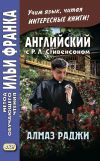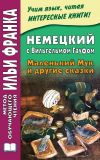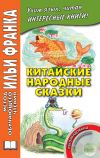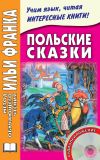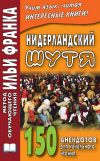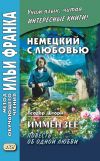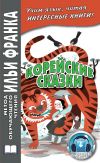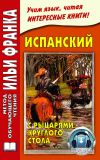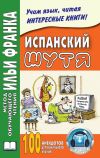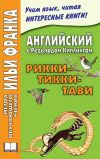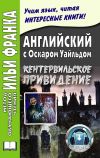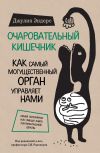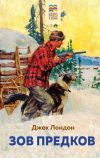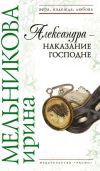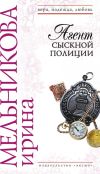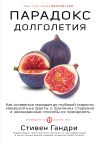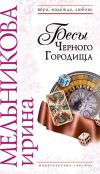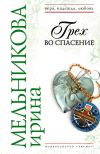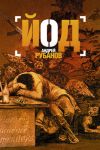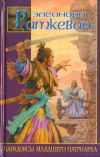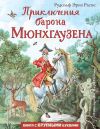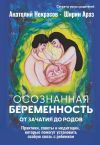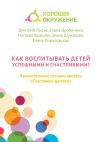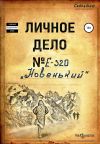
Автор книги: Энтони Хоуп
Жанр: Иностранные языки, Наука и Образование
Возрастные ограничения: 16+
сообщить о неприемлемом содержимом
“I have known many of the Elphbergs,” said he, “and I have seen you (я знал многих Эльфбергов и я видел вас). And, happen what may, you have borne yourself as a wise King and a brave man (и, что бы ни случилось, вы вели себя как мудрый король и храбрый человек; to bear oneself – вести себя); ay, and you have proved as courteous a gentleman and as gallant a lover (да, и доказали, что вы такой же учтивый джентльмен и галантный кавалер) as any that have been of the House (как любой другой из этого рода).”

“On my faith and honour, and by the fear of God, I swear it! And may Almighty God preserve your Majesty, for I think that you go on an errand of danger.”
“I hope that no life more precious than mine may be demanded,” said I, rising. Then I held out my hand to him.
“Marshal,” I said, “in days to come, it may be – I know not – that you will hear strange things of the man who speaks to you now. Let him be what he may, and who he may, what say you of the manner in which he has borne himself as King in Strelsau?”
The old man, holding my hand, spoke to me, man to man.
“I have known many of the Elphbergs,” said he, “and I have seen you. And, happen what may, you have borne yourself as a wise King and a brave man; ay, and you have proved as courteous a gentleman and as gallant a lover as any that have been of the House.”
“Be that my epitaph,” said I (да будет это моей эпитафией, – сказал я), “when the time comes that another sits on the throne of Ruritania (когда придет время другому сесть на трон Руритании).”
“God send a far day (пусть Господь нескоро пошлет вам /этот/ день: «Бог /да/ пошлет отдаленный день»), and may I not see it (и да не увижу я его; may – мочь, иметь возможность; пусть, да /в воскл. предложениях выраж. пожелание/)!” said he.
I was much moved, and the Marshal’s worn face twitched (я был весьма тронут, морщинистое лицо маршала подергивалось; worn – изношенный, потертый). I sat down and wrote my order (я сел и написал свой указ).
“I can hardly yet write,” said I; “my finger is stiff still (я едва могу писать, мой палец все еще не гнется).”
It was, in fact, the first time that I had ventured to write more than a signature (это был, фактически, первый раз, когда я отважился написать больше, чем свое имя: «подпись»); and in spite of the pains I had taken to learn the King’s hand (и несмотря на все усилия, которые я предпринимал, чтобы выучить почерк короля), I was not yet perfect in it (я пока еще не преуспел в этом: «я еще не был в этом безупречен»).
“Indeed, sire,” he said, “it differs a little from your ordinary handwriting (в самом деле, сир, обычно у вас немного другой почерк: «это немного отличается от вашего обычного почерка»). It is unfortunate, for it may lead to a suspicion of forgery (это нехорошо, поскольку это может привести к подозрению в подлоге; unfortunate – несчастный; неудачный).”
“Marshal,” said I, with a laugh, “what use are the guns of Strelsau (маршал, – сказал я, усмехнувшись, – какой прок в пушках Стрелсо), if they can’t assuage a little suspicion (если они не могут успокоить легкое подозрение)?”
He smiled grimly, and took the paper (он мрачно улыбнулся и взял бумагу; grim – жестокий, беспощадный; мрачный, зловещий).
“Colonel Sapt and Fritz von Tarlenheim go with me,” I continued (полковник Сэпт и Фриц фон Тарленхайм едут со мной, – продолжал я).

“Be that my epitaph,” said I, “when the time comes that another sits on the throne of Ruritania.”
“God send a far day, and may I not see it!” said he.
I was much moved, and the Marshal’s worn face twitched. I sat down and wrote my order.
“I can hardly yet write,” said I; “my finger is stiff still.”
It was, in fact, the first time that I had ventured to write more than a signature; and in spite of the pains I had taken to learn the King’s hand, I was not yet perfect in it.
“Indeed, sire,” he said, “it differs a little from your ordinary handwriting. It is unfortunate, for it may lead to a suspicion of forgery.”
“Marshal,” said I, with a laugh, “what use are the guns of Strelsau, if they can’t assuage a little suspicion?”
He smiled grimly, and took the paper.
“Colonel Sapt and Fritz von Tarlenheim go with me,” I continued.
“You go to seek the duke?” he asked in a low tone (вы едете за герцогом: «разыскивать герцога» – спросил он тихим голосом).
“Yes, the duke, and someone else of whom I have need (да, за герцогом и еще кое за кем, кто мне очень нужен: «в ком я имею нужду»), and who is at Zenda,” I replied (и кто /сейчас/ находится в Зенде, – ответил я).
“I wish I could go with you (жаль, что я не могу поехать с вами),” he cried, tugging at his white moustache (воскликнул он, дергая свой седой ус). “I’d like to strike a blow for you and your crown (мне бы хотелось постоять за вас и вашу корону; to strike a blow – нанести удар; to strike – ударять, бить).”
“I leave you what is more than my life and more than my crown (я оставляю вам то, что дороже: «больше» моей жизни и моей короны),” said I, “because you are the man I trust more than all other in Ruritania (потому что вы человек, которому я доверяю больше, чем всем остальным в Руритании).”
“I will deliver her to you safe and sound (я передам ее вам в целости и сохранности; safe – невредимый; sound – здоровый, крепкий),” said he, “and, failing that, I will make her queen (а /если/ этого не случится = если вас не станет, я сделаю ее королевой; failing – за неимением, в случае отсутствия; to fail – потерпеть неудачу, не иметь успеха).”
We parted, and I returned to the Palace (мы расстались, я вернулся во дворец) and told Sapt and Fritz what I had done (и рассказал Сэпту и Фрицу, что я предпринял). Sapt had a few faults to find and a few grumbles to utter (Сэпт нашел некоторые недостатки и /немного/ поворчал; grumble – ворчанье, ропот; to utter – издавать звук, произносить). This was merely what I expected (я только этого /от него/ и ждал), for Sapt liked to be consulted beforehand, not informed afterwards (поскольку Сэпт любил, чтобы с ним советовались заранее, а не ставили перед фактом: «а не уведомляли впоследствии»); but on the whole he approved of my plans (но, в целом, он одобрил мой план), and his spirits rose high as the hour of action drew nearer and nearer (и настроение у него поднималось /по мере того/, как приближалось время действовать; to draw near – приближать/ся/).

“You go to seek the duke?” he asked in a low tone.
“Yes, the duke, and someone else of whom I have need, and who is at Zenda,” I replied.
“I wish I could go with you,” he cried, tugging at his white moustache. “I’d like to strike a blow for you and your crown.”
“I leave you what is more than my life and more than my crown,” said I, “because you are the man I trust more than all other in Ruritania.”
“I will deliver her to you safe and sound,” said he, “and, failing that, I will make her queen.”
We parted, and I returned to the Palace and told Sapt and Fritz what I had done. Sapt had a few faults to find and a few grumbles to utter. This was merely what I expected, for Sapt liked to be consulted beforehand, not informed afterwards; but on the whole he approved of my plans, and his spirits rose high as the hour of action drew nearer and nearer.
Fritz, too, was ready; though he, poor fellow, risked more than Sapt did (Фриц тоже был готов; хотя он, бедняга, рисковал больше, чем Сэпт), for he was a lover, and his happiness hung in the scale (потому что он был влюблен, и на весах лежало: «висело» его счастье; to hang). Yet how I envied him (однако, как же я ему завидовал)! For the triumphant issue which would crown him with happiness and unite him to his mistress (ибо победоносный исход, который увенчал бы его славой и соединил со своей возлюбленной; issue – выпуск, издание /печатной продукции/; исход, результат; mistress – хозяйка, госпожа; возлюбленная /поэт./), the success for which we were bound to hope and strive and struggle (успех, на который мы надеялись, /к которому/ стремились и /за который/ боролись; to be bound to do smth. – быть вынужденным сделать что-л.), meant to me sorrow more certain and greater than if I were doomed to fail (означал для меня страдания более безнадежные и большие, чем если бы я был обречен на неудачу; certain – определенный, неизменный; несомненный). He understood something of this, for when we were alone (он понимал кое-что из этого = мои чувства ему были отчасти понятны, потому что, когда мы были одни) (save for old Sapt, who was smoking at the other end of the room (если не считать Сэпта, который курил в другом конце комнаты)) he passed his arm through mine, saying (он, взяв меня под руку, сказал):
“It’s hard for you (для вас это трудно). Don’t think I don’t trust you (не думайте, что я не верю вам); I know you have nothing but true thoughts in your heart (я знаю, что у вас в душе только чистые намерения; true – верный, правильный; искренний; thought – мысль; намерение).”
But I turned away from him (но я отвернулся от него), thankful that he could not see what my heart held (радуясь, что он не может видеть того, что у меня в душе; thankful – благодарный; довольный, радующийся; to hold – держать; вмещать, содержать в себе), but only be witness to the deeds that my hands were to do (а будет лишь только свидетелем деяний, которые сделают мои руки).
Yet even he did not understand (однако даже он не понимал), for he had not dared to lift his eyes to the Princess Flavia, as I had lifted mine (потому что он не осмеливался взглянуть: «поднять глаза» на принцессу Флавию так, как глядел /на нее/ я).

Fritz, too, was ready; though he, poor fellow, risked more than Sapt did, for he was a lover, and his happiness hung in the scale. Yet how I envied him! For the triumphant issue which would crown him with happiness and unite him to his mistress, the success for which we were bound to hope and strive and struggle, meant to me sorrow more certain and greater than if I were doomed to fail. He understood something of this, for when we were alone (save for old Sapt, who was smoking at the other end of the room) he passed his arm through mine, saying:
“It’s hard for you. Don’t think I don’t trust you; I know you have nothing but true thoughts in your heart.”
But I turned away from him, thankful that he could not see what my heart held, but only be witness to the deeds that my hands were to do.
Yet even he did not understand, for he had not dared to lift his eyes to the Princess Flavia, as I had lifted mine.
Our plans were now all made (все наши планы теперь были составлены), even as we proceeded to carry them out (точно так, как мы действовали по их выполнению; even – ровно; точно, как раз; to proceed – продолжать; действовать, поступать), and as they will hereafter appear (так же они появятся = будут изложены здесь далее; here – здесь, тут; after – за, позади; после, спустя; hereafter – затем, дальше /в статье, книге и т. п./; to appear – показываться, появляться; выходить, издаваться, появляться /в печати/). The next morning we were to start on the hunting excursion (на следующее утро мы должны были выехать на охоту; to start – начинать/ся/; отправляться, пускаться в путь). I had made all arrangements for being absent (я уже сделал все распоряжения на время своего отсутствия; arrangement – приведение в порядок; arrangements – мероприятия, распоряжения), and now there was only one thing left to do (и теперь оставалось сделать только одно дело) – the hardest, the most heart-breaking (самое трудное, самое тяжелое для души; heart – сердце, душа; to break – ломать, разрывать). As evening fell, I drove through the busy streets to Flavia’s residence (когда наступил вечер, я поехал по людным улицам к дому Флавии). I was recognized as I went and heartily cheered (когда я проезжал, меня узнавали и сердечно приветствовали). I played my part, and made shift to look the happy lover (я играл свою роль и старался выглядеть счастливым влюбленным; to make shift – делать усилие, стараться). In spite of my depression (несмотря на мое подавленное настроение; depression – уныние, депрессия), I was almost amused at the coolness and delicate hauteur (меня почти позабавили холодность и легкая надменность; delicate – утонченный, изысканный; едва уловимый) with which my sweet lover received me (с которыми моя очаровательная возлюбленная приняла меня). She had heard that the King was leaving Strelsau on a hunting expedition (она уже слышала, что король уезжает из Стрелсо на охоту).
“I regret that we cannot amuse your Majesty here in Strelsau (я сожалею, что мы не в состоянии развлечь ваше величество здесь в Стрелсо),” she said, tapping her foot lightly on the floor (сказала она, легонько топнув ножкой: «стукнув ножкой легонько об пол»). “I would have offered you more entertainment (я бы предложила вам больше развлечений), but I was foolish enough to think (но я по глупости подумала: «но я была довольно глупа, чтобы подумать») – ”
“Well, what?” I asked, leaning over her (ну, что? – спросил я, склонившись над ней).

Our plans were now all made, even as we proceeded to carry them out, and as they will hereafter appear. The next morning we were to start on the hunting excursion. I had made all arrangements for being absent, and now there was only one thing left to do – the hardest, the most heart-breaking. As evening fell, I drove through the busy streets to Flavia’s residence. I was recognized as I went and heartily cheered. I played my part, and made shift to look the happy lover. In spite of my depression, I was almost amused at the coolness and delicate hauteur with which my sweet lover received me. She had heard that the King was leaving Strelsau on a hunting expedition.
“I regret that we cannot amuse your Majesty here in Strelsau,” she said, tapping her foot lightly on the floor. “I would have offered you more entertainment, but I was foolish enough to think – ”
“Well, what?” I asked, leaning over her.
“That just for a day or two after – after last night (что дня на два после – после прошлой ночи) – you might be happy without much gaiety (вы можете быть счастливы и без обилия развлечений);” and she turned pettishly from me, as she added (и она обидчиво отвернулась от меня, добавив), “I hope the boars will be more engrossing (надеюсь, вепри будут более увлекательным /занятием/).”
“I’m going after a very big boar,” said I (я еду за очень крупным вепрем, – сказал я); and, because I could not help it, I began to play with her hair (и, не сумев удержаться, я стал гладить ее локоны: «играть с ее волосами»), but she moved her head away (но она отстранилась; to move away – удаляться; отодвигать).
“Are you offended with me?” I asked, in feigned surprise (ты обиделась на меня? – спросил я, изображая удивление; to feign – притворяться, симулировать), for I could not resist tormenting her a little (поскольку не мог удержаться от того, чтобы помучить ее немножко). I had never seen her angry (я никогда не видел ее сердитой), and every fresh aspect of her was a delight to me (и каждая новая черта ее /характера/ была для меня радостным /открытием/; delight – восхищение, восторг; источник наслаждения).
“What right have I to be offended (какое я имею право обижаться)? True, you said last night that every hour away from me was wasted (правда, прошлой ночью вы говорили, что каждый час вдали от меня потрачен впустую). But a very big boar! that’s a different thing (но очень большой вепрь! это /совсем/ другое дело).”
“Perhaps the boar will hunt me,” I suggested (может /случиться так/, что этот вепрь будет охотиться на меня). “Perhaps, Flavia, he’ll catch me (возможно, Флавия, я стану его добычей: «он поймает меня»).”
She made no answer (она ничего не ответила).
“You are not touched even by that danger (тебя не трогает даже такая опасность; to touch – прикасаться, трогать; трогать волновать)?”
Still she said nothing; and I, stealing round (она продолжала молчать: «она все еще ничего не говорила», и я, тихонько обойдя /ее/), found her eyes full of tears (увидел: «обнаружил», что глаза ее полны слез).

“That just for a day or two after – after last night – you might be happy without much gaiety;” and she turned pettishly from me, as she added, “I hope the boars will be more engrossing.”
“I’m going after a very big boar,” said I; and, because I could not help it, I began to play with her hair, but she moved her head away.
“Are you offended with me?” I asked, in feigned surprise, for I could not resist tormenting her a little. I had never seen her angry, and every fresh aspect of her was a delight to me.
“What right have I to be offended? True, you said last night that every hour away from me was wasted. But a very big boar! that’s a different thing.”
“Perhaps the boar will hunt me,” I suggested. “Perhaps, Flavia, he’ll catch me.”
She made no answer.
“You are not touched even by that danger?”
Still she said nothing; and I, stealing round, found her eyes full of tears.
“You weep for my danger (ты плачешь из-за опасности, /которая мне грозит/)?”
Then she spoke very low (тут она очень тихо заговорила):
“This is like what you used to be (/ты сейчас/ похож на того, каким был раньше; used to be – этот оборот используется при описании состояний, которые имели место в прошлом, а потом изменились); but not like the King – the King I–I have come to love (но не на короля – не на того короля, – которого я полюбила)!”
With a sudden great groan, I caught her to my heart (неожиданно издав долгий вздох, я прижал ее к груди; groan – стон; тяжелый вздох).
“My darling!” I cried, forgetting everything but her (любимая моя! – воскликнул я, забывая обо всем, кроме нее), “did you dream that I left you to go hunting (неужели ты вообразила, что я оставлю тебя, чтобы отправиться на охоту; to dream – видеть сон; думать, помышлять)?”
“What then, Rudolf (что же тогда, Рудольф)? Ah! you’re not going (ах! ты не едешь) —?”
“Well, it is hunting (ну, это /действительно/ охота). I go to seek Michael in his lair (я еду травить: «искать» Михаэля в его логове).”
She had turned very pale (краска схлынула с ее лица: «она стала очень бледной»).
“So, you see, sweet, I was not so poor a lover as you thought me (итак, ты /теперь/ понимаешь, милая, что я не такой неблагодарный возлюбленный, как ты обо мне думала; poor – бедный, неимущий; скверный, жалкий). I shall not be long gone (я не долго буду в отъезде).”
“You will write to me, Rudolf (ты будешь мне писать, Рудольф)?”
I was weak (я был нерешителен; weak – слабый; нерешительный, слабовольный), but I could not say a word to stir suspicion in her (но я не мог сказать ни слова, /которое бы/ вызвало у нее подозрение; to stir – помешивать, шевелить; волновать, возбуждать).
“I’ll send you all my heart every day (я буду посылать тебе всю свою любовь каждый день; heart – сердце; любовь),” said I.
“And you’ll run no danger (и ты не будешь подвергаться опасности; to run – бежать; подвергаться /риску, опасности/)?”
“None that I need not (нет, если не будет необходимости).”
“And when will you be back (а когда ты вернешься)? Ah, how long will it be (ах, как это будет долго)!”

“You weep for my danger?”
Then she spoke very low:
“This is like what you used to be; but not like the King – the King I–I have come to love!”
With a sudden great groan, I caught her to my heart.
“My darling!” I cried, forgetting everything but her, “did you dream that I left you to go hunting?”
“What then, Rudolf? Ah! you’re not going —?”
“Well, it is hunting. I go to seek Michael in his lair.”
She had turned very pale.
“So, you see, sweet, I was not so poor a lover as you thought me. I shall not be long gone.”
“You will write to me, Rudolf?”
I was weak, but I could not say a word to stir suspicion in her.
“I’ll send you all my heart every day,” said I.
“And you’ll run no danger?”
“None that I need not.”
“And when will you be back? Ah, how long will it be!”
“When shall I be back?” I repeated (когда я вернусь? – повторил я).
“Yes, yes! Don’t be long, dear, don’t be long (да, да! возвращайся скорее: «не будь долго»). I shan’t sleep while you’re away (я не засну, пока тебя не будет рядом: «когда ты будешь далеко»).”
“I don’t know when I shall be back (я не знаю, когда вернусь),” said I.
“Soon, Rudolf, soon (скоро, Рудольф, скоро)?”
“God knows, my darling (одному Богу известно, любимая). But, if never (но, если никогда) – ”
“Hush, hush!” and she pressed her lips to mine (тише! молчи! – и она прижалась своими губами к моим).
“If never,” I whispered, “you must take my place (если не /вернусь/, – прошептал я, – ты должна занять мое место); you’ll be the only one of the House then (ты тогда останешься единственной из рода). You must reign, and not weep for me (ты должна править и не оплакивать меня).”
For a moment she drew herself up like a very queen (на миг она гордо выпрямилась, как настоящая королева; to draw oneself up – выпрямиться во весь рост).
“Yes, I will!” she said. “I will reign (да, я буду править). I will do my part though all my life will be empty and my heart dead (я выполню свое предназначение, даже если вся моя жизнь будет пуста, а сердце мертво; part – часть, доля; обязанность, дело; to do one’s part – делать свое дело); yet I’ll do it (и все же я сделаю это)!”
She paused, and sinking against me again, wailed softly (она замолчала и, снова уткнувшись в меня, тихонько запричитала; to sink – опускать/ся/, падать; погружаться /тж. перен./; against – против /указ. на противоположное направление/; о, об, на, с и др. /указ. на опору или соприкосновение/; to wail – вопить, выть; причитать, стенать).
“Come soon! come soon (возвращайся скорее)!”
Carried away, I cried loudly (увлекшись, я громко крикнул; to carry away – уносить; увлекать):
“As God lives, I – yes, I myself – will see you once more before I die (как Бог жив, я – да, я сам – увижу тебя еще раз, прежде чем умру)!”

“When shall I be back?” I repeated.
“Yes, yes! Don’t be long, dear, don’t be long. I shan’t sleep while you’re away.”
“I don’t know when I shall be back,” said I.
“Soon, Rudolf, soon?”
“God knows, my darling. But, if never – ”
“Hush, hush!” and she pressed her lips to mine.
“If never,” I whispered, “you must take my place; you’ll be the only one of the House then. You must reign, and not weep for me.”
For a moment she drew herself up like a very queen.
“Yes, I will!” she said. “I will reign. I will do my part though all my life will be empty and my heart dead; yet I’ll do it!”
She paused, and sinking against me again, wailed softly.
“Come soon! come soon!”
Carried away, I cried loudly:
“As God lives, I – yes, I myself – will see you once more before I die!”
“What do you mean?” she exclaimed, with wondering eyes (что ты имеешь в виду? – воскликнула она, удивленно взглянув на меня: «с удивленными глазами»); but I had no answer for her (но мне не было, что ей ответить: «но у меня не было для нее ответа»), and she gazed at me with her wondering eyes (и она пристально смотрела на меня своими удивленными глазами).
I dared not ask her to forget (я не осмелился попросить ее забыть /эти слова/), she would have found it an insult (она восприняла бы это как обиду: «посчитала бы это обидой»). I could not tell her then who and what I was (я не мог рассказать ей тогда, кто я и что я). She was weeping, and I had but to dry her tears (она плакала, и мне ничего не оставалось, как осушать = вытирать ей слезы).
“Shall a man not come back to the loveliest lady in all the wide world (неужели мужчина не вернется к самой прекрасной даме на всем белом свете)?” said I. “A thousand Michaels should not keep me from you (тысяча михаэлей не разлучат нас: «не удержат меня от тебя»; to keep from – удерживать, не подпускать)!”
She clung to me, a little comforted (немного успокоенная, она прильнула ко мне; to cling – цепляться, прилипать; льнуть).
“You won’t let Michael hurt you (ты не позволишь Михаэлю причинить тебе вред)?”
“No, sweetheart (нет, любимая; sweetheart – возлюбленный; дорогой, любимый /в обращении/).”
“Or keep you from me (или разлучить нас)?”
“No, sweetheart.”
“Nor anyone else (и никому другому /не позволишь/)?”
And again I answered (и я снова ответил):
“No, sweetheart.”

“What do you mean?” she exclaimed, with wondering eyes; but I had no answer for her, and she gazed at me with her wondering eyes.
I dared not ask her to forget, she would have found it an insult. I could not tell her then who and what I was. She was weeping, and I had but to dry her tears.
“Shall a man not come back to the loveliest lady in all the wide world?” said I. “A thousand Michaels should not keep me from you!”
She clung to me, a little comforted.
“You won’t let Michael hurt you?”
“No, sweetheart.”
“Or keep you from me?”
“No, sweetheart.”
“Nor anyone else?”
And again I answered:
“No, sweetheart.”
Yet there was one – not Michael – who, if he lived, must keep me from her (все же был один человек – не Михаэль, – который, если он жив, должен будет разлучить нас); and for whose life I was going forth to stake my own (и ради жизни которого я намеревался в дальнейшем поставить на кон свою собственную; forth – вперед; впредь; to stake – делать ставку). And his figure – the lithe, buoyant figure I had met in the woods of Zenda (и его фигура – гибкая, полная сил фигура /человека/, которого я встретил в лесу под Зендой; buoyant – плавучий; жизнерадостный, бодрый) – the dull, inert mass I had left in the cellar of the hunting-lodge (отупевшая, вялая масса, которую я оставил в погребе охотничьего домика) – seemed to rise, double-shaped, before me, and to come between us (как будто вырастала передо мной в обоих этих воплощениях и становилась между нами; to rise – подниматься, вставать; double – двойной, сдвоенный; shape – форма, очертание), thrusting itself in even where she lay, pale, exhausted, fainting, in my arms (проникая даже туда, где у меня на руках лежала она, бледная, утомленная, ослабевшая), and yet looking up at me with those eyes (и все же смотрящая на меня теми глазами) that bore such love as I have never seen (в которых отражалась такая любовь: «которые несли такую любовь», какую я никогда не встречал), and haunt me now, and will till the ground closes over me (и преследовала меня сейчас и будет преследовать, пока земля не сомкнется надо мной) – and (who knows?) perhaps beyond (и (кто знает?) может быть, и после /смерти/; beyond – за, по ту сторону).

Yet there was one – not Michael – who, if he lived, must keep me from her; and for whose life I was going forth to stake my own. And his figure – the lithe, buoyant figure I had met in the woods of Zenda – the dull, inert mass I had left in the cellar of the hunting-lodge – seemed to rise, double-shaped, before me, and to come between us, thrusting itself in even where she lay, pale, exhausted, fainting, in my arms, and yet looking up at me with those eyes that bore such love as I have never seen, and haunt me now, and will till the ground closes over me – and (who knows?) perhaps beyond.
